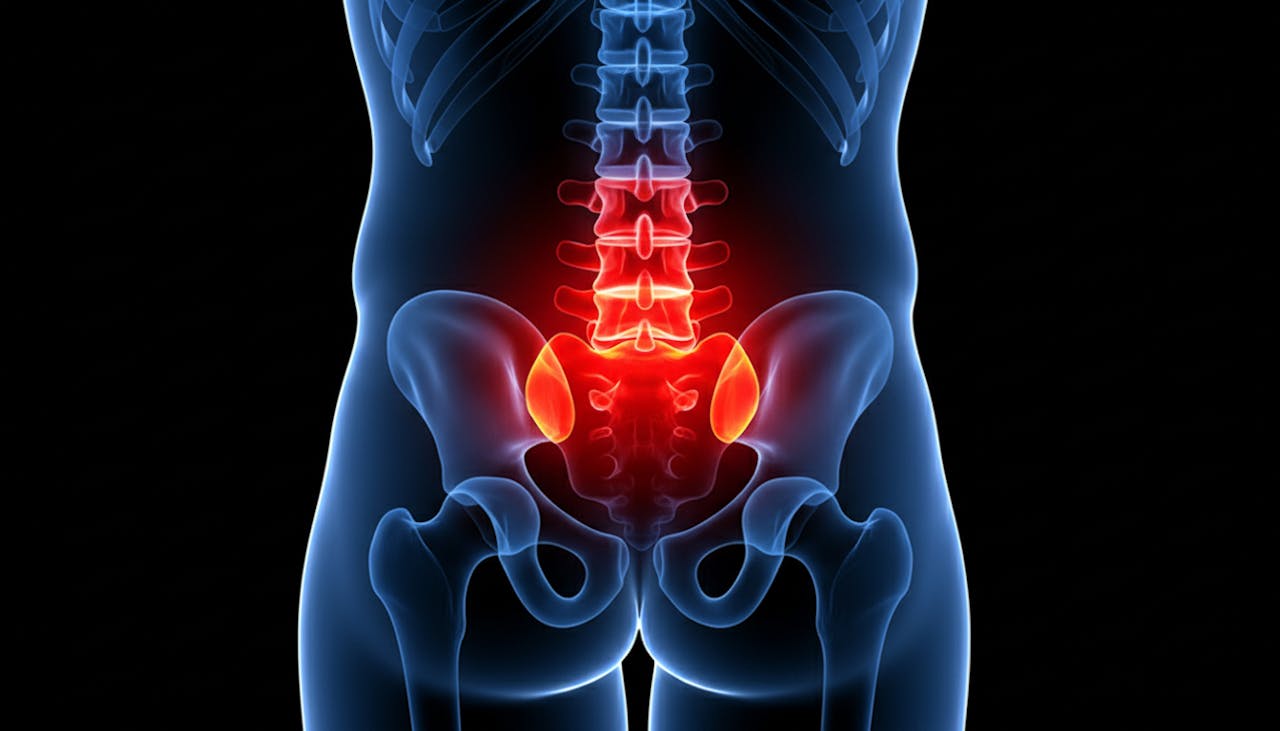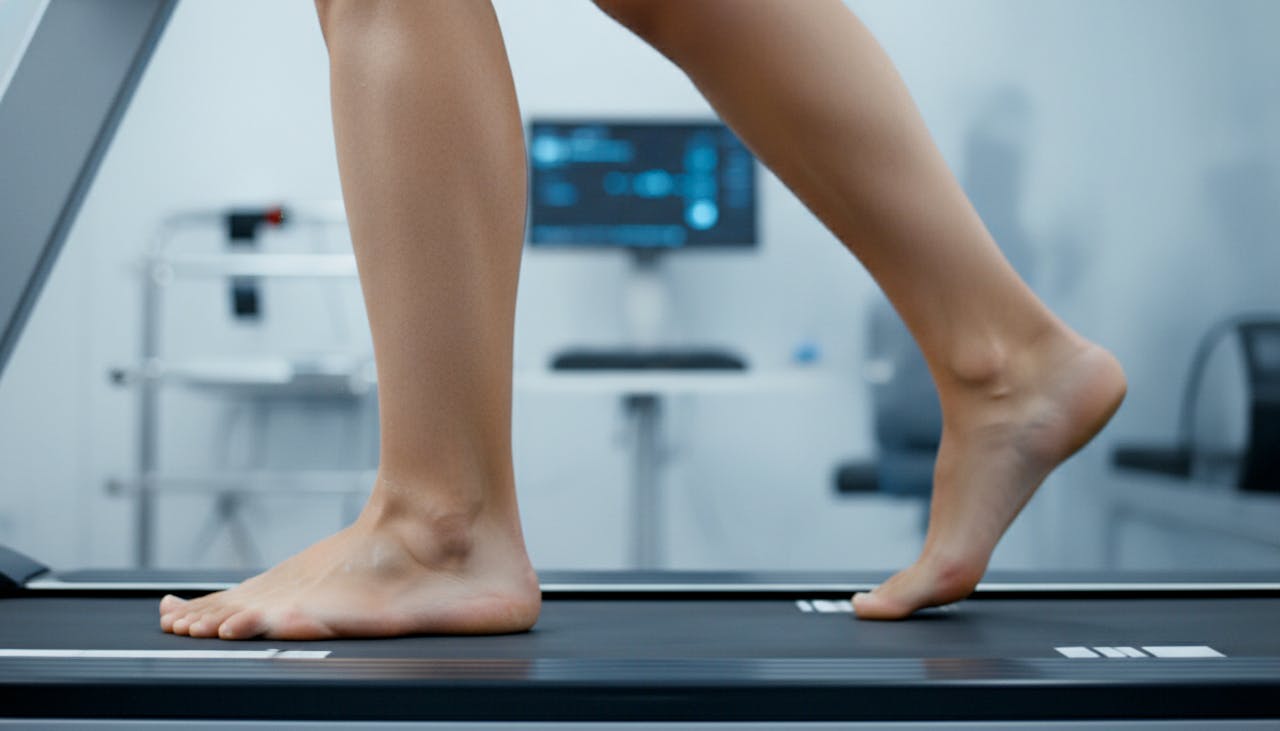
Radiculopathy
Radiculopathy, commonly known as a "pinched nerve," occurs when a nerve root in the spine is compressed or irritated, often sending sharp pain, numbness, or weakness down the leg and into the foot.
Overview
What is it?
Radiculopathy is not a specific condition but rather a description of a problem where one or more nerves are affected at the point they exit the spinal column (the nerve root). While the problem originates in the lower back (lumbar spine), the brain interprets the pain signals as coming from the area that nerve supplies—often all the way down to your toes. "Sciatica" is the most well-known form of lumbar radiculopathy.
How common is it?
It is extremely common, closely tied to the high prevalence of lower back issues in the general population. It is most frequently seen in adults aged 30 to 50, often due to disc issues, and in older adults due to degenerative changes in the spine.

Symptoms & Causes
What are the symptoms?
Symptoms typically follow a specific path down the leg, depending on which nerve root is trapped.
- Pain: often sharp, shooting, or burning, traveling from the buttock down the thigh, calf, and into the foot.
- Altered Sensation: Numbness or "pins and needles" in specific areas of the foot or toes.
- Weakness: You might find it difficult to lift your big toe or, in more severe cases, experience "foot drop" (inability to lift the front of your foot when walking).
What does it feel like?
Unlike a dull muscle ache, radicular pain is often described as "electric," "searing," or like hot water running down the leg. Some patients feel no pain at all, only a disturbing sensation that part of their foot is "dead" or asleep.
What causes it?
- Herniated Disc: The soft, gel-like centre of a spinal disc bulges out and presses against a nearby nerve root.
- Spinal Stenosis: Narrowing of the spaces within the spine, often due to osteoarthritis as we age, which puts pressure on the nerves.
- Spondylolisthesis: When one vertebra slips forward over the one below it.
Some health conditions can include:
- Diabetes: can make nerves more susceptible to compression injury.

How is it Diagnosed?
Patients often come to Foot Factor thinking they have a specific foot injury because that is where the pain is most intense. We play a crucial role in identifying that the source is actually the spine.
What tests are used to diagnose it?
- Neurological Assessment: We perform simple but vital tests in-clinic: checking your lower limb reflexes (knee and ankle jerks), testing muscle strength (e.g., asking you to push your big toe against resistance), and assessing sensation with specialised tools to see if specific nerve pathways are affected.
- Straight Leg Raise Test: A clinical test where lifting your straightened leg while lying down reproduces the shooting leg pain.
- Referral for Imaging: If we suspect significant radiculopathy, specifically if there is progressive weakness, we will refer you (usually via your GP or a specialist) for an MRI of the spine to visualise the nerve compression.
Foot Factor provides Expert Podiatry Treatment Tailored to You.
At Foot Factor, our podiatrists specialise in diagnosing and treating foot pain with precision and expertise. With advanced gait analysis, bespoke orthotics, and sports-focused podiatry care, we don’t just identify the problem—we provide a targeted solution to get you back to moving pain-free. Book a consultation today and take the first step toward lasting relief.

How is it Treated?
While the primary treatment for the spine often involves physiotherapy or medical management from a spinal specialist, Foot Factor plays a vital role in managing the consequences of radiculopathy on your walking ability.
- Gait Management & Orthotics: If radiculopathy has caused muscle weakness (like drop foot), your gait will be significantly affected, which can lead to secondary injuries (tripping, or overusing other muscles to compensate). We can provide specialised orthotics or braces that lift the foot for you, normalising your walk while the nerve recovers.
- Footwear Advice: Numb feet are at high risk of unoticed injury (blisters or cuts you cannot feel). We provide essential advice on protective, well-fitting footwear to prevent complications.
- Monitoring: We can monitor for any deterioration in your foot strength or sensation, ensuring you get timely medical referrals if the condition progresses.
Our Bespoke Orthotics give you the Right Support for Long-Term Relief.
At Foot Factor, our podiatrists specialise in diagnosing and treating foot pain with precision and expertise. With advanced gait analysis, bespoke orthotics, and sports-focused podiatry care, we don’t just identify the problem—we provide a targeted solution to get you back to moving pain-free. Book a consultation today and take the first step toward lasting relief.
Related Articles
Find expert tips, advice, and insights to support your foot health and active lifestyle.


